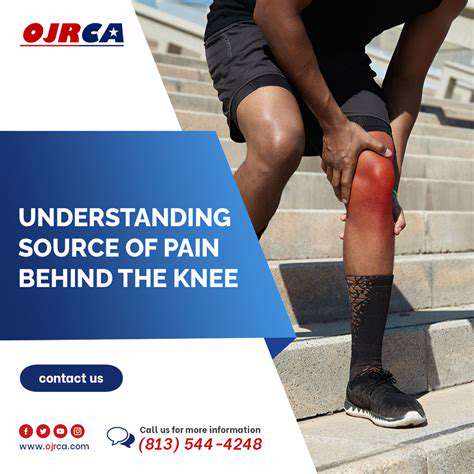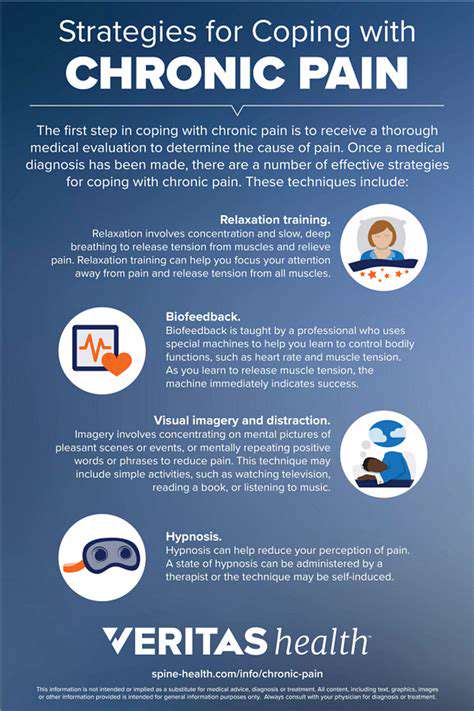The Nature of Debilitating Pain
Understanding the Causes of Debilitating Pain
Debilitating pain can stem from a variety of sources, including chronic conditions, acute injuries, and underlying health issues. Understanding the root cause is crucial in developing an effective management plan. Whether it’s arthritis, fibromyalgia, or a prior injury, recognizing the specific condition can guide treatment options.
Many individuals experience pain that is not only physical but also psychological in nature. Conditions such as anxiety and depression can amplify the sensation of pain, making it more challenging to cope. A multidisciplinary approach that includes mental health support often proves beneficial.
It is essential to consult healthcare professionals who can accurately diagnose the source of pain. Diagnostic tests, such as MRIs or blood tests, may be necessary for a comprehensive understanding. This information is pivotal for building an effective management or treatment strategy.
Coping Mechanisms for Daily Life
Living with debilitating pain requires the development of coping mechanisms that can be incorporated into daily routines. Mindfulness and meditation practices are effective in reducing stress and can help alleviate the perception of pain. These techniques encourage individuals to focus on the present moment, which can be grounding during challenging times.
Physical activity, when approached cautiously, can also serve as a coping strategy. Gentle exercises such as stretching, walking, or swimming can help maintain mobility and improve mood. It's important to listen to the body and avoid overexertion to prevent worsening symptoms.
Developing a strong support system consisting of family, friends, and support groups can make a significant difference. Sharing experiences and learning from others who understand the struggles of living with chronic pain can provide emotional relief and practical coping strategies.
Medical Treatments Available
There are various medical treatments available for individuals suffering from debilitating pain, ranging from over-the-counter medications to more specialized options. Nonsteroidal anti-inflammatory drugs (NSAIDs) are commonly used to reduce inflammation and alleviate pain. However, it's crucial to consult with a healthcare provider to determine the most appropriate option.
Prescription medications, such as opioids, may be necessary for severe pain but come with risks of dependency. Alternative therapies, such as corticosteroids or nerve blocks, can also be effective for certain conditions. Exploring a combination of medications may yield the best results.
Beyond pharmacological treatments, some patients find relief through physical therapy, acupuncture, or chiropractic care. These alternative approaches can help strengthen the body, improve function, and reduce pain levels, offering a holistic approach to care.
Therapeutic Practices to Enhance Well-Being
In addition to conventional medical treatments, incorporating therapeutic practices can enhance overall well-being. Techniques such as yoga, tai chi, and various forms of dance therapy have shown to improve flexibility and reduce pain perception. Many individuals find joy in movement, which can significantly boost mental health.
Art and music therapy are also promising avenues for expression and coping. Engaging in creative activities allows individuals to channel their pain into something productive and restorative. Writing, painting, or playing an instrument can serve as emotional outlets.
Nutrition plays a significant role in managing chronic pain as well. A balanced diet rich in anti-inflammatory foods can contribute to better health outcomes. Consulting with a nutritionist can help create a meal plan that supports pain management and overall vitality.
The Role of Lifestyle Changes
Making lifestyle changes can significantly impact the experience of living with debilitating pain. Prioritizing sleep hygiene is vital; quality rest can increase resilience and decrease pain sensitivity. Establishing a regular sleep schedule, creating a comfortable sleep environment, and avoiding screens before bedtime can foster better sleep.
Stress management tactics are equally important in alleviating pain. Techniques such as deep breathing, journaling, and structured time for relaxation can mitigate the effects of stress on the body. Finding relaxation methods that work personally can empower individuals to take charge of their well-being.
Finally, staying informed about the latest research and developments in pain management can provide individuals with new strategies and insights. Engaging with healthcare professionals and attending workshops can foster a proactive approach towards handling debilitating pain.
Identifying the Sources of Pain

Understanding Different Types of Pain
Pain can be categorized into various types, most commonly classified as acute or chronic. Acute pain typically arises suddenly due to injury or illness and usually resolves with treatment, while chronic pain persists over time, often without a clear cause.
Recognizing the difference between these types can aid individuals in seeking appropriate care. Chronic pain, in particular, requires a more nuanced approach as it can significantly impact a person's physical and emotional wellbeing.
Seeking Medical Advice
Consulting a healthcare professional is essential for anyone living with debilitating pain. A qualified doctor can help determine the underlying causes of pain and recommend suitable treatment options.
Regular check-ups can also help in monitoring the condition and adjusting pain management strategies as needed. Open communication about pain levels and symptoms can enhance the effectiveness of treatment plans.
Exploring Alternative Therapies
In addition to conventional medicine, many individuals find relief through alternative therapies. Techniques such as acupuncture, chiropractic care, and massage therapy have shown promise in managing pain.
Exploring these options can provide a holistic approach to pain management, often leading to improved overall quality of life. It is advisable to consult healthcare providers before beginning any new therapy to ensure compatibility with existing treatments.
Emotional and Mental Health Support
Living with chronic pain can take a toll on mental health, leading to feelings of isolation and depression. It is crucial to address these emotional aspects by seeking therapy or support groups.
Connecting with others who understand your experience can be tremendously beneficial. Such support systems can provide encouragement and practical advice for coping with the daily challenges of living with pain.
Implementing Lifestyle Changes
Adopting a healthier lifestyle can significantly impact pain management. Regular exercise, a balanced diet, and sufficient sleep are fundamental components that aid in reducing pain levels and improving overall health.
Incorporating relaxation techniques such as yoga or meditation can also enhance coping strategies. Every small change can lead to a better quality of life, making daily activities more manageable and enjoyable.
Strategies for Coping with Debilitating Pain

Understanding the Nature of Pain
Living with debilitating pain can often feel isolating. Most people can understand the concept of pain, but the impact it has on daily life is often underestimated. Acknowledging the unique experience of each individual’s pain journey is crucial for emotional and physical healing.
Research indicates that pain is not just a physical sensation; it can also have profound psychological effects. Chronic pain can lead to feelings of anxiety, depression, and hopelessness. This emotional turmoil often exacerbates the physical experience of pain, creating a challenging cycle.
Understanding one’s own pain triggers and patterns can empower individuals to seek the most effective coping strategies. Keeping a pain diary, noting when pain worsens or improves, can provide valuable insights that can be shared with healthcare providers.
Developing a Comprehensive Pain Management Plan
Creating a personalized pain management plan is essential for those living with chronic pain. This plan should encompass medical treatments, physical therapy, and self-care practices. Collaboration with healthcare professionals is key in developing an effective approach.
Complementary therapies, such as acupuncture, massage, and mindfulness, can also play a significant role in managing pain. These methods often provide relief and help reduce stress, which can be a significant pain trigger for many individuals.
It's vital to remain proactive in exploring new treatments and therapies. Pain management is an evolving field, and what works best may change over time, necessitating regular reassessment and adaptation of the pain management plan.
Building a Support System
Living with debilitating pain often calls for a strong support network. Support can come from family, friends, support groups, or professional counselors who understand the challenges of chronic pain. Sharing experiences with others who understand can dramatically enhance emotional well-being.
Communication is a key component of building this support system. Educating loved ones about the nature of your pain and how it affects you can foster empathy and understanding in relationships. It’s important to express your needs and involve them in the healing process.
Joining support groups, whether in-person or online, can provide a sense of belonging and validation. These groups can be an invaluable resource for sharing coping strategies, emotional support, and practical advice, enabling individuals to feel less alone on their journey.
The Importance of a Support System
The Role of Friends and Family
A strong support system can significantly impact one's ability to manage chronic pain. Friends and family members often provide emotional comfort and encouragement during difficult times.
They can assist in daily activities, which can alleviate some of the physical burdens associated with pain, allowing individuals to focus on healing.
Their understanding and willingness to listen can create a safe emotional space for sharing struggles and frustrations.
Involving loved ones in the healing journey can foster a sense of community, reducing feelings of isolation that often accompany chronic pain.
Encouraging open discussions about pain can help educate friends and family on how to be more supportive, improving relationships and understanding.
Professional Support: Seeking Therapy
Therapists and counselors can provide valuable coping strategies tailored to individual needs and situations. They can help individuals process the emotional toll that chronic pain often takes.
Cognitive-behavioral therapy (CBT), for example, is effective in changing negative thought patterns that can exacerbate pain perception.
Group therapy can also be beneficial, allowing individuals to connect with others experiencing similar challenges, fostering a sense of belonging.
Building resilience through professional guidance can lead to better problem-solving skills and improved emotional regulation.
Regular therapy sessions can establish a routine that helps individuals prioritize mental well-being alongside physical healing.
Support Groups: Finding Community
Support groups provide a platform for people with chronic pain to share their experiences and coping strategies with others who understand their challenges.
These groups can be found both in-person and online, offering flexibility and accessibility for those with mobility issues.
Sharing personal stories can lead to valuable insights, helping individuals feel less alone in their struggles.
Not only do support groups offer camaraderie, but they also promote the exchange of information on treatments and coping techniques.
Being part of a group can empower participants, encouraging them to take an active role in their healing journey.
Education and Awareness: Tools for Empowerment
Educating oneself about chronic pain can significantly improve management strategies, providing individuals with the tools needed for effective coping.
Understanding the science behind pain can demystify the experience, reducing anxiety and fear associated with it.
Workshops and seminars often cover various aspects of pain management, including physical exercises, nutrition, and mindfulness practices.
Awareness of personal triggers can lead to proactive measures, allowing individuals to navigate their day-to-day lives more effectively.
As individuals learn and share their knowledge, they contribute to a broader conversation about chronic pain, fostering greater societal empathy and support.